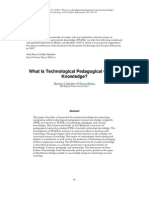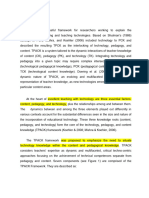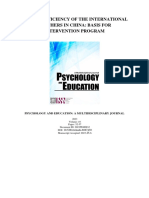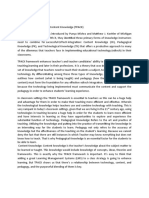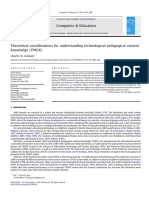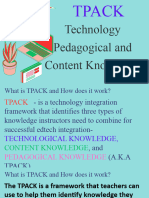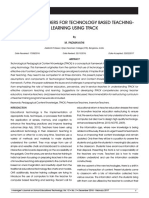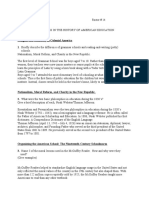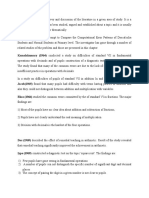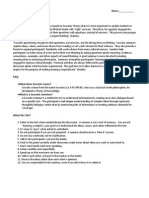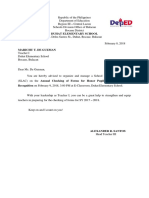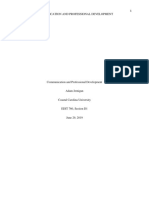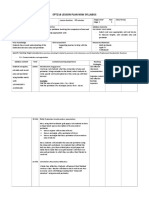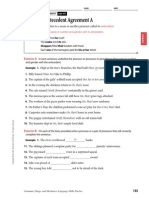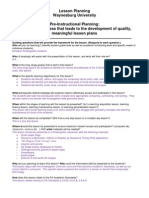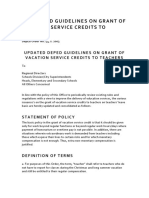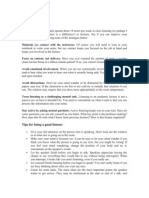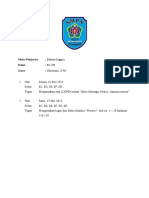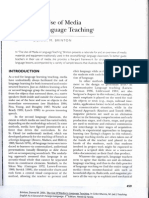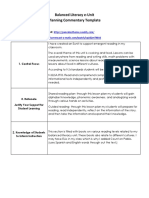0% found this document useful (0 votes)
7 views7 pagesAssignment One
The TPACK framework outlines the essential knowledge teachers need for effective technology integration in education, focusing on the interplay between technological, pedagogical, and content knowledge. It emphasizes that teachers must adapt to technological advancements to enhance their teaching practices and improve student engagement. The framework serves as a guide for educators to develop their skills and effectively incorporate technology into their teaching methodologies.
Uploaded by
Kundi Ma MutasaCopyright
© © All Rights Reserved
We take content rights seriously. If you suspect this is your content, claim it here.
Available Formats
Download as DOCX, PDF, TXT or read online on Scribd
0% found this document useful (0 votes)
7 views7 pagesAssignment One
The TPACK framework outlines the essential knowledge teachers need for effective technology integration in education, focusing on the interplay between technological, pedagogical, and content knowledge. It emphasizes that teachers must adapt to technological advancements to enhance their teaching practices and improve student engagement. The framework serves as a guide for educators to develop their skills and effectively incorporate technology into their teaching methodologies.
Uploaded by
Kundi Ma MutasaCopyright
© © All Rights Reserved
We take content rights seriously. If you suspect this is your content, claim it here.
Available Formats
Download as DOCX, PDF, TXT or read online on Scribd
/ 7








